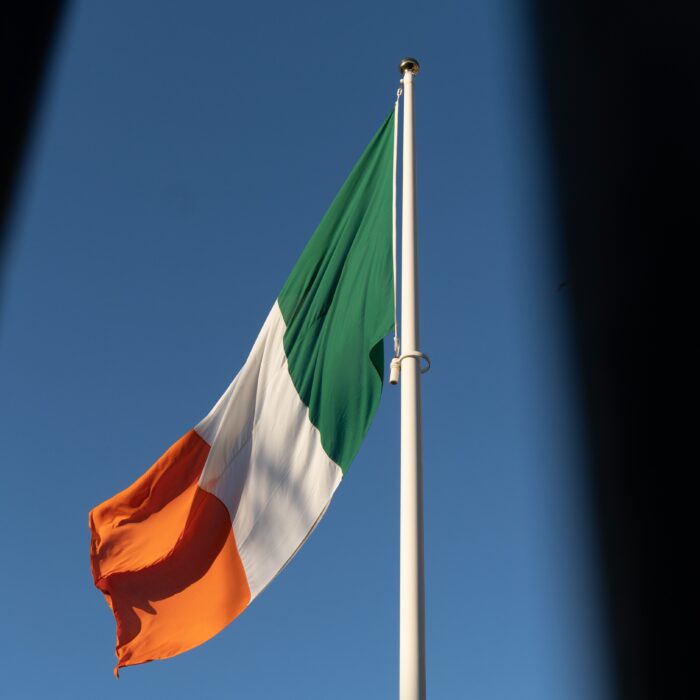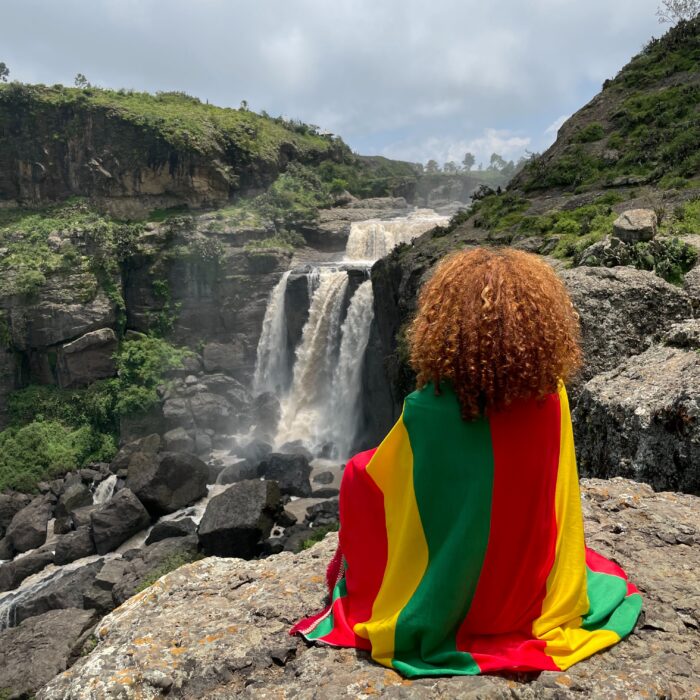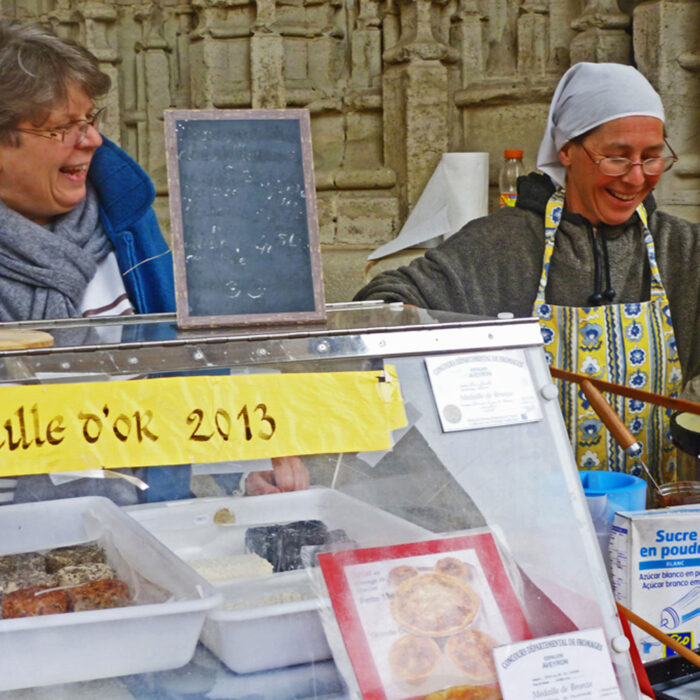You have no items in your cart. Want to get some nice things?
Go shoppingAmerican writer Zachary Watterson gives his advice on the personal essay, and recounts a memorable visit to the Eastern Bloc.
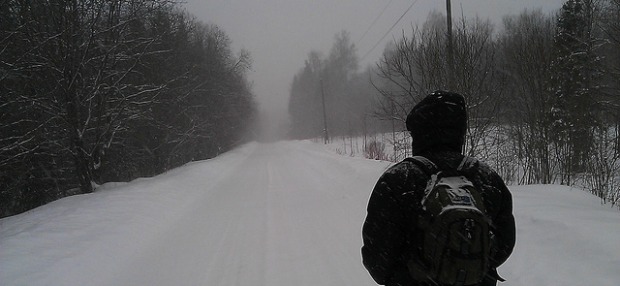
I have heard that in Britain the personal essay is considered a minor genre. Plays, poems, short stories and novels—all are seen as sexier than an essayist’s romp. To describe my affinity for this hybrid of commentary, consideration and meditation on a particular subject, I suppose I can say that it can give you the freedom to recount anecdotes from your life for which you might not otherwise have a venue, to share something that might resonate with a reader, giving him a window on a world other than his own familiar one.
Take, for example, a trip I once took. I visited my cousin Corrina in Moscow in December and stayed until after the New Year. Corrina—a slender face and figure, with dimples, rust-coloured hair and green eyes—picked me up at the airport and drove me to Prechistenka, the upscale neighbourhood where she lived with her diplomat husband Marco and their two children.
On my first morning in Moscow, Marco and I went down two huge flights of stairs from the lobby of their building into an underground passage and arrived at the uncovered area where we had left their blue Volvo sedan the night before. The traffic on the Sadovoye Koltso—a sixteen-lane ring road—rushed in my ears. The Volvo was where we had left it, but the hood was badly dented—and the snow near the car was matted. Something sparkled there in the snow. I reached down and grabbed someone’s fliptop cell phone. What could have happened to the Volvo? Marco learned from a neighbour that there had been a party the night before and a drunk guest had fallen off the balcony above and onto the family car. I picked up the cell phone, brushed snow off its screen, and gave it to Marco, who shut off its power.
Marco invited me to come along when he went to the local police station to file a police report about the accident. We sat in the office with a thin policeman who typed up Marco’s complaint in detail. The policeman scrolled through the contact list on the phone. He seemed to be looking for something. Marco spoke Russian, of course, and after speaking with the man at length translated the policeman’s cunning. In order to capture the man who damaged the Volvo, the officer devised a clever sting. He had landed on one name on the contact list he was planning to use to help him trap the culprit: Mama. Whoever had done this had a mother who answered the ring and ate the policeman’s claim that he had happened to find her son’s phone in the snow and wanted to return it to its owner. A meeting was arranged and at an appointed hour the policeman met and apprehended the drunkard and charged him with the full cost of having Marco and Corrina’s Volvo restored.
On the fifth floor of a massive Soviet-era residential building, Marco and Corrina lived in a warm apartment. The building in front of theirs housed a French bank, a hair salon, a series of small offices, and a bait and tackle shop for residents who went fishing when they escaped to their dachas on the weekend; the building directly in front of Corrina and Marco’s building shielded them from the nonstop noise of the traffic on the Sadovoye Koltso. To reach their apartment you entered an inner courtyard and walked below an arch with enough clearance for a horse and carriage to pass under it. The nearby pedestrian walkway, known as Stary Arbat, dated back to the 15th century. On the other side of a wrought iron fence the office worker had tumbled over a second-story railing and into the car park where he dented the Volvo.
Adjacent to the car park was a children’s play area. There was a slide and a broken set of swings that had rusted and been painted over in pastels. An elderly man seemed to take up residence there most days. I would often see him sitting on the intact part of a partly broken bench, spitting sunflower seeds onto the snow. Ice glistened on the sidewalk, slick in patches and rutted in other areas.
We stepped inside the building itself and said hello to the concierge, a Tajik whose mother worked in a toy store in an underground shop near the Stary Arbat metro station. The concierge sometimes brought a toy from his mother’s store for the children. The elevator possessed a silver interior aglow, thanks to a mirror that reflected its passengers—Corrina with her unusual beauty, Marco’s silvering temples, my own face and shoulders, a head above theirs with blockish glasses and curly black hair.
One night they threw a dinner party. It was a disaster. Fruit flies flew into the glasses of red wine. Corrina became infuriated. After the party, she took her anger out on the terrarium that had nurtured the fruit flies. She had bought it for the kids, who loved to study the three African snails—as big as Corrina’s fists—that lived there. She threw away the whole thing: dirt and snails and fruit flies. Everything went into the trash chute in the hallway. It was an incident she would later think of as her lowest parenting moment.
At night I slept cocooned inside two sleeping bags on Corrina and Marco’s glassed-in balcony. I shared the space with a firebrick red children’s slide. The enclosure had not been weatherized and the cold was blistering. Only the top of my nose peeked out of the bag as I burrowed in. Occasionally I ventured inside the apartment for glasses of Nestle water. Since the cost of living in Prechistenka left them very little room in their budget, and Marco’s salary was not quite enough to live as comfortably as they liked, Corrina took a job teaching English to the sons of a Russian family who lived near the university. She took the two children for walks, sang songs with them, spoke English, and as she and the boys kicked snow in the park she did the mental acrobatics of calculating how much she would earn that day.
On a morning in early January, Corrina drove me to the train station.
“Take this,” she said, and handed me the Russian Lonely Planet guide. “You have eighteen hours of Russian travel ahead.”
I boarded the train to Berlin. Corrina followed behind me. We found my compartment, sat on velour seats, and passed back and forth a silver flask of coffee. Corrina said goodbye and stepped off the train onto the station platform. She waved as the train creaked forward, gathering speed. I was alone again, as I had been when I flew to Russia, and I recorded what I thought I’d want to know years later in a journal in which I attempted to articulate the being I was at that moment, hurtling west through what was once the Eastern bloc. Dachas speckled the woods on either side of the train. Here and there smoke twisted upward in grey-black tufts against the limestone-coloured sky. I remember the gathering dark and the woods outside beyond the thunder of the wheels on the tracks.
The peace of the journey was shattered in the middle of the night, when I was awakened from a deep sleep by a knocking on my door. I pulled on my pants, hitched closed my belt and headed toward the door. There were more knocks, someone knocking and then pounding. I opened the door. A man in uniform stood before me. The uniform didn’t look Russian, and it occurred to me that I may have crossed a border. He shouted at me in Russian. I did not understand. Then he gestured that I needed to get off the train. There was no mistaking his meaning. I tried to give him forty dollars. His anger came through his foreign string of words and his moving his hands in the air.
I laced my boots and shouldered my bag and followed him onto the cold platform of the train station. I still did not know what country I was in. A hammer and sickle were carved into the massive Soviet stationhouse toward which we walked. Snowflakes drifted down onto my face, melting on my nose and cheeks, and the temperature was below freezing. The border patrolman led me into the station house and shouted something to another patrolman, who told me in halting English that I must return the following day to fill out paperwork and pay a fine. I asked him where I was. He looked at me incredulously.
“What country is this?”
“Belarus.”
“Where is there to stay for a night?”
He spit out one spiteful word. “Taxi.”
I could hear my train pull out of the station, leaving me behind. Thumbing through my Russian Lonely Planet, I landed on a few phrases, and tried them out under my breath. The station was draughty. I rummaged in my bag and came out with a scarf, which I wrapped around my throat. Twenty yards from me I noticed a woman in her fifties. She had a wizened, elegant face, as if she had once been a heartthrob, and she wore a long winter coat. Near her were a man who looked like he could be her son, a woman who stood near the man and had smooth bones that stretched the skin out on her chin and cheeks, a boy about fourteen years old, and a woman in her mid-twenties who was brunette, confident and robust.
The older woman looked at me, and I looked back at her. She spoke to the teenage boy. He and the woman my age approached me. They asked me in impressively proficient English what I was doing there. I told them I had been kicked off the train. Why, they wanted to know, and I admitted I did not know the answer. I asked them where in Belarus we were. The city was called Brest. The two went back to the woman, conferred with her, and then returned and invited me to come stay with their family. I learned their names: the woman in the long coat was Anastasia; her son was Yegor, and Polina was Yegor’s wife: their son, Maxim, had initiated conversation with me, and Darya, Anastasia’s niece had accompanied him. I sat in the back seat of a sleek black Lada, and Darya took the other seat in back. Yegor drove; Polina rode shotgun. Anastasia drove another car of the same make, Maxim riding beside her; Yegor followed a few car lengths behind his mother.
On the drive I saw trees on the side of the road, the occasional house emitting pallid light, snow falling from the sky. We parked on a flat stretch of road. I followed the family up three brick steps to the front door of a two-storey house surrounded by other houses spaced widely on one-acre lots at the edge of the woods. This was Anastasia’s house. Her dining room table was well lit and held baskets of cold chicken, boiled eggs, bowls of borscht. I took the seat Yegor offered. When Darya poured me a glass of vodka, I was so grateful I wanted her to bear my child, but I only smiled and thanked her.
That night I slept in the second-floor nursery, which the children had long ago forsaken, and in the morning I heard someone playing scales on the piano and singing. Anastasia was an opera singer who travelled to Moscow every few months to perform.
The next day a senior border patrolman berated me and insisted I pay a fine. Although Darya translated for the patrolman and me, I wasn’t sure why I had to pay the money, only that if I wanted to leave Belarus I had better pay.
To get a little air after spending the day in the patrolman’s office, Darya drove us west of the main city to Brest Fortress, a monument commemorating Soviet resistance against the German invasion in 1941. The site was a woodsy outdoor space near a river. There was a sculpture of a thirsty man dragging his body to the river. A recording of voices singing “Sacred War” played on repeat over loudspeakers lodged into the concrete below the star-shaped entrance to the memorial: massive angles formed in cement with impressive overhangs. As dusk washed the light from the sky, hundreds of floodlights and red, white and green lights popped on and illuminated the Eternal Flame glowing and the single monument rising above the earth. The ruins of the barracks in the distance. I remember the singing, the lights, the fortress walls. I remember the tombstones—words chiselled into stone. I remember Darya pointing to a word and explaining it meant Unknown. I can still conjure that feeling of attempting to absorb the knowledge that thousands of soldiers fought and died there. That the barracks and the fortress had been constructed and reconstructed. Just like my own life. Just like other people’s lives.
Fifty-two hours after my unexpected middle-of-the-night walk to the stationhouse in the falling snow, I said goodbye to the family who had sheltered me, boarded another train, and continued on my way to Berlin. What happened after that is not germane to this story. What matters is that for a moment there I was obliged to step into an unknown country where I was taken in by strangers who treated me as if I were one of their own. Anastasia and her family opened their home to me and through their kindness showed me how an unwelcome predicament can sometimes turn into an adventure one could not have imagined.
This, then, is for me in this instance the value of the personal essay. To capture a brief period of time in my life that haunts me even now.
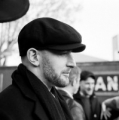
About Zachary Watterson
Zachary Watterson is a writer in Philadelphia, Pennsylvania, whose essays and short stories have appeared in the Massachusetts Review, River Styx, thestranger.com and Commentary Magazine's 2012 summer fiction issue. His work has received several awards, including a Pushcart Prize nomination and a New Stories from the Midwest nomination. He has received scholarships from the Bread Loaf Writers' Conference, a 2011 grant from the Elizabeth George Foundation, and fellowships from the University of Washington and the Jentel Artist Residency Program. His essay "Open Late Hours" appeared in Post Road and was selected by Robert Atwan as a notable essay for Best American Essays 2013.

